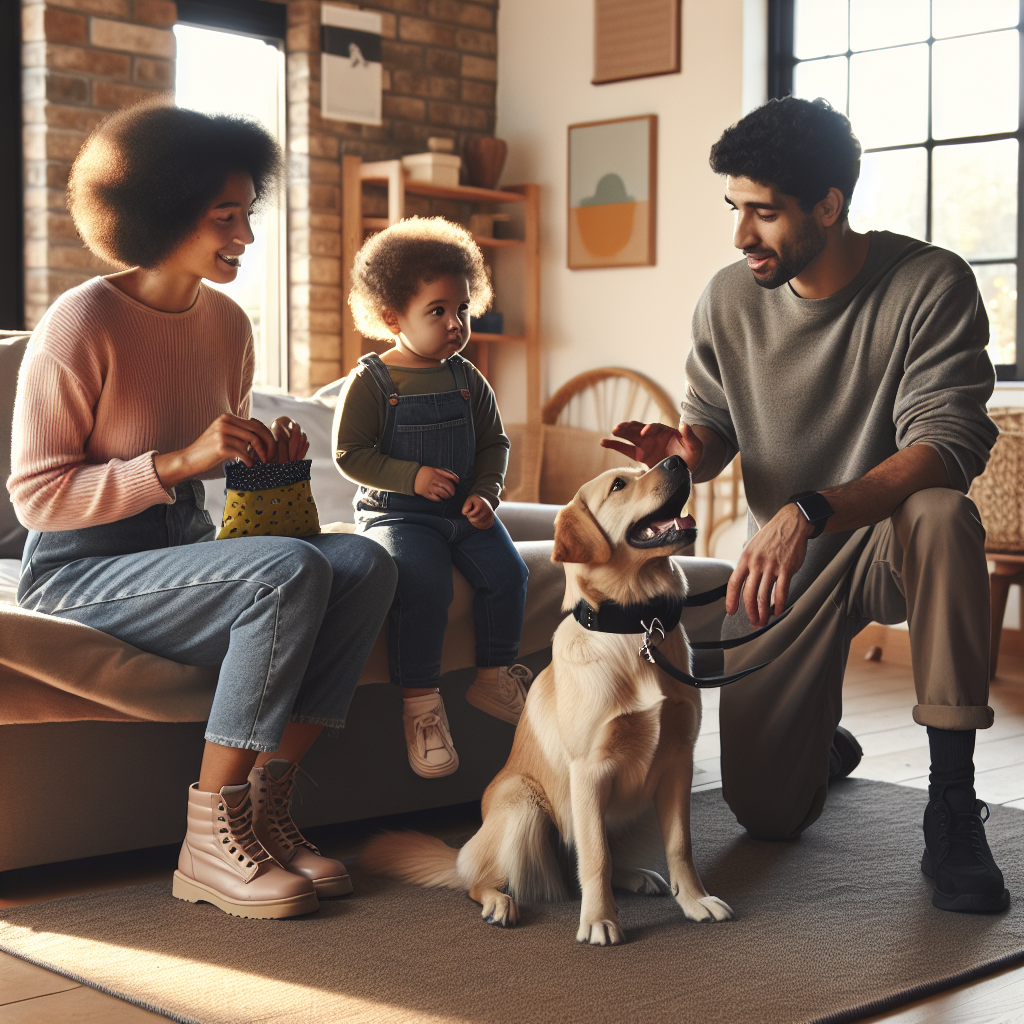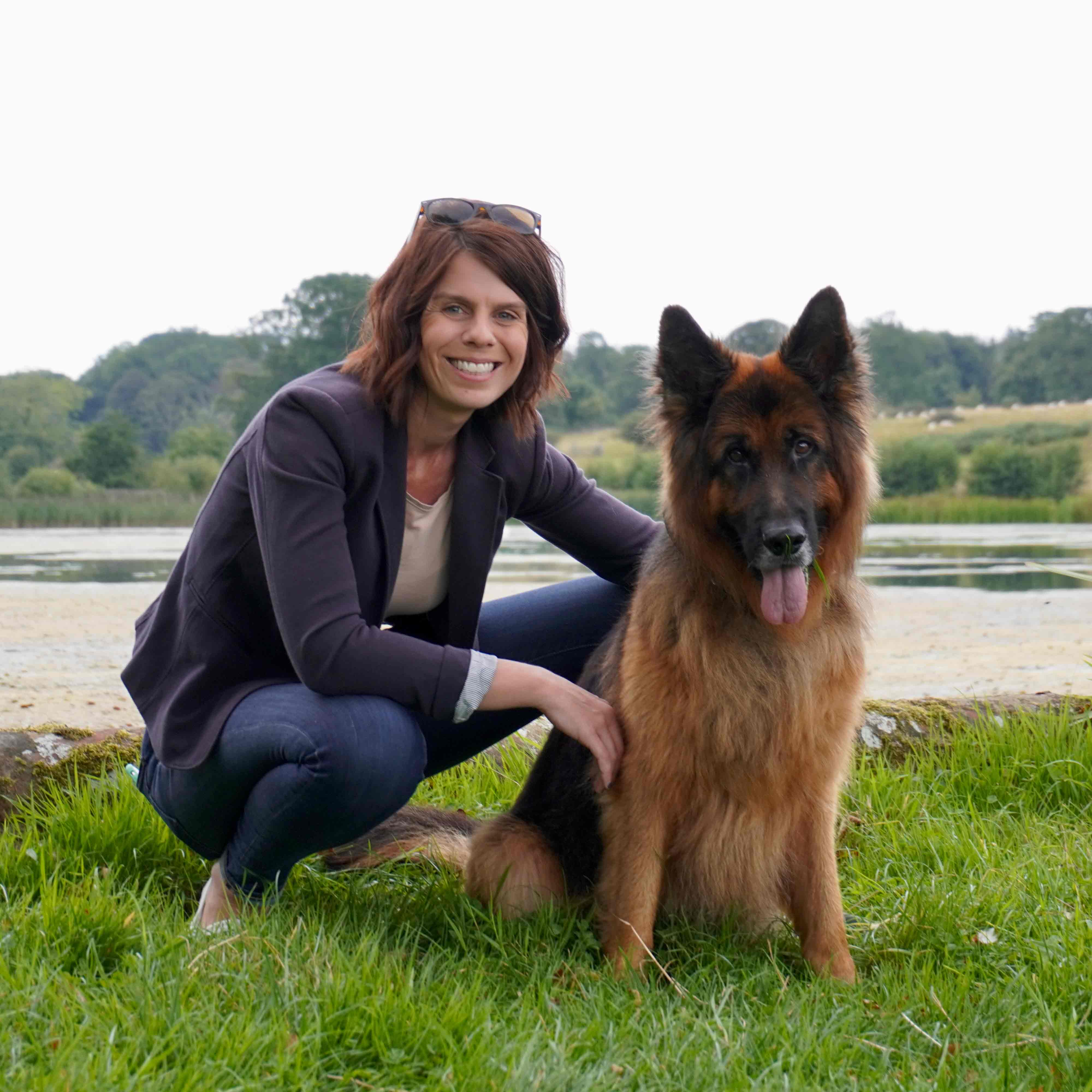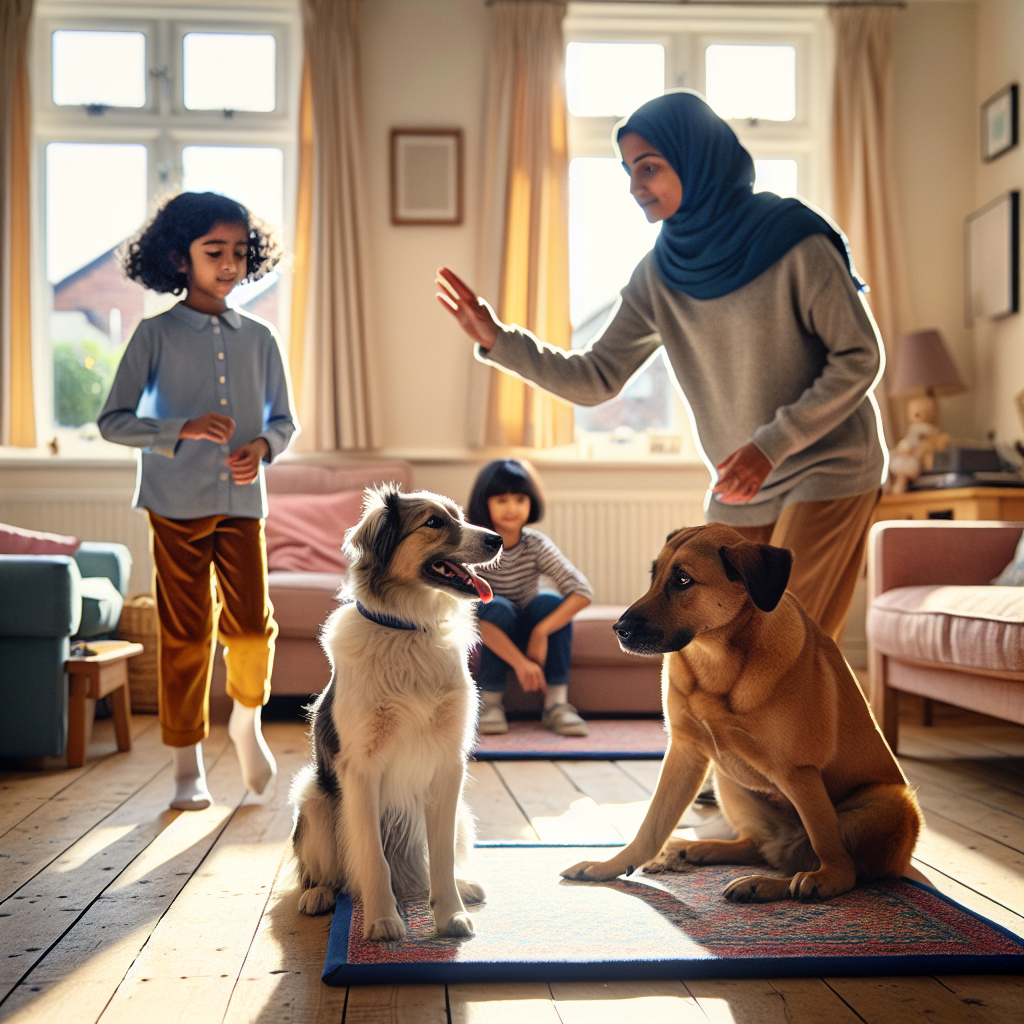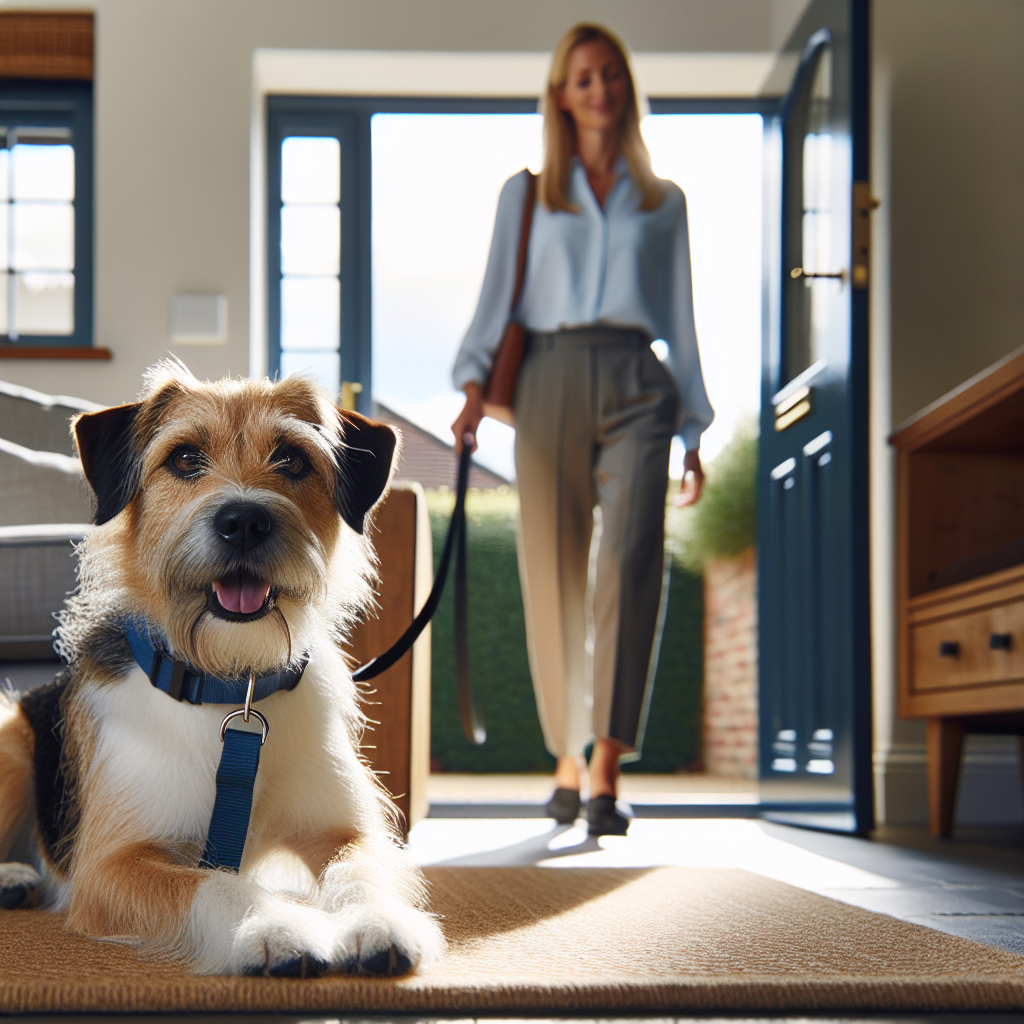Why Foundation Training Never Ends

Why Foundation Training Never Ends
Foundation training is not a starter course that you finish and forget. At Smart Dog Training, foundation training is the steady rhythm behind calm, reliable behaviour in real life. It builds your dog’s everyday skills and keeps them strong through change, stress, and distraction. When you understand why foundation training never ends, you gain a simple plan to keep your dog steady for life.
Every programme at Smart Dog Training uses the Smart Method to keep foundation training clear and consistent. From puppies to seniors, we build skills that last, then we keep them alive through short, regular practice. This is how a Smart Master Dog Trainer coaches families, and it works across the UK in real homes and real environments.
What Foundation Training Really Means
Foundation training is the set of core skills that make daily life easy and safe. It focuses on clarity, calm, and control. These are not fancy tricks. They are practical behaviours that should work anywhere. When we say foundation training, we mean the essential cues and habits that hold your routine together.
- Place stay for calm in the home
- Loose lead walking without pulling
- Reliable recall
- Sit, down, and wait with duration
- Leave it and drop it for safety
- Polite greetings and doorway manners
These skills are simple to start and easy to refresh. That is the point. Foundation training never ends because life never stops changing. We handle that change by returning to basics often and building them up again with the Smart Method.
The Smart Method That Keeps Skills Alive
Foundation training stays strong when it follows a clear structure. The Smart Method is our proprietary system. It blends motivation with fair guidance and clear standards. It creates calm, confident, and willing behaviour that holds up in the real world. Every Smart Dog Training programme uses this method.
- Clarity so your dog always understands what you ask
- Pressure and release for fair guidance and responsibility
- Motivation so your dog wants to work
- Progression that adds distraction, duration, and distance
- Trust that grows with consistent practice
Because the Smart Method is progressive, it fits every stage of life. That is why foundation training never ends. It evolves with your dog, your home, and your goals.
Clarity Starts on Day One and Continues for Life
Clarity is the heart of foundation training. Clear markers, consistent cues, and precise timing remove doubt and reduce conflict. Dogs thrive when the rules are simple and steady. We keep clarity alive by using the same words, the same hand signals, and the same release markers every time. When life gets busy, go back to short, clear reps. This resets your dog’s picture of success and brings behaviour back to standard.
Pressure and Release Builds Accountability Over Time
Foundation training is kind and fair. We guide with pressure and release so the dog understands how to turn pressure off. This builds accountability without conflict. Over months and years, this fairness matters. Your dog learns that calm choices lead to instant relief and reward. That is how foundation training produces reliable behaviour under stress.
Motivation That Does Not Fade
Motivation drives engagement. Food, toys, praise, and life rewards keep training fun and focused. We change rewards as the dog matures, but we never stop rewarding good choices. Foundation training never ends because motivation needs refreshing. New games, varied reinforcers, and a mix of easy wins keep effort high and behaviour sharp.
Progression That Matches Real Life
We build from quiet rooms to busy streets. We add distraction, duration, and distance step by step. That is how we turn foundation training into automatic behaviour. When your environment changes, we briefly lower the difficulty and rebuild. This keeps your dog successful even when the world gets loud.
Trust That Deepens With Practice
Trust grows when you are consistent. Your dog learns that your guidance is fair and predictable. You learn to read signals and adjust at the right time. This bond is not a fixed event. It is a living part of foundation training that becomes stronger with every session.
The Science of Habits in Dogs
Dogs are masters of habit. They do what they practice. Foundation training sets the habits you want and repeats them often. The brain keeps what it uses. When you keep repping core behaviours, the neural pathways stay strong. If you stop, they fade. This is why foundation training never ends. It is not about drilling for hours. It is about regular, short, high quality reps that keep habits alive.
Milestones That Need Maintenance
- Adolescence can loosen recall and focus. Foundation training holds standards steady.
- New homes, babies, or other pets change routines. Basics keep structure in place.
- Seasonal shifts add new distractions. Short refreshers prevent setbacks.
- Injury or rest can reduce activity. Calm skills maintain mental balance.
In each case, foundation training gives you a simple way to reset and progress again.
How Foundation Training Looks Across Life Stages
Puppies Building the First Bricks
For puppies, foundation training starts with engagement and clarity. Short sessions, gentle handling, and easy wins set the tone. We build sit, down, place, and name recognition. We reward attention and teach release markers. We condition calm on leash and polite greetings. Early work makes later stages smooth.
Adolescence and the Boundary Test
Teenage dogs test limits. They are curious, energetic, and social. Foundation training keeps boundaries clear and consistent. We balance motivation with fair guidance. We practise place stay during visitors, loose lead walking past dogs, and recall away from play. This is where the Smart Method shines. Standards are clear. Rewards are rich. Release is timely. Accountability is fair. Progress is steady.
Adult Dogs Keeping Standards High
Adult dogs can coast on good habits or slide when life gets busy. Foundation training prevents drift. We set weekly drills that keep recall crisp, leash manners light, and place stay solid. A few minutes a day protects years of work.
Senior Dogs and Gentle Refinement
Seniors benefit from calm, predictable routines. Foundation training supports mobility, confidence, and comfort. We shorten sessions, lower difficulty, and keep rewards meaningful. The cues stay the same. The pace adapts.
Core Skills That Always Deserve Reps
Place Stay That Holds Calm Anywhere
Place stay is the anchor of the home. It creates a calm spot where your dog learns to switch off. It helps with guests, mealtimes, and busy kitchens. It also supports recovery after exercise. In foundation training, we practise place stay daily, then add distance, duration, and distraction. We generalise to every room and later to new places.
Loose Lead Walking Without Tension
Pulling vanishes when you make the job clear and comfortable. We use the Smart Method to show your dog how to keep slack in the lead. Reward position. Release pressure the moment your dog returns to the right spot. In foundation training, we refresh this skill often, especially in new areas or seasons when excitement rises.
Recall That Works When It Counts
Recall is a safety skill. In foundation training, we build it through games, progressive distractions, and clear reward events. We do not test recall in hard settings until it is reliable in easy ones. We revisit easy wins often so recall stays sharp for life.
Leave It and Drop It For Safety
These cues prevent conflict and protect health. We start with low value items and clear rewards for correct choices. We add real life items only when the habit is steady. In foundation training, we keep these cues fresh with random practice around the home and on walks.
Calm Greetings and Doorway Manners
Impulse control is a core goal of foundation training. We teach sit for greetings and patience at doors. We practise daily. We reward calm heavily. We never let chaos become the habit. That is how manners stick.
Real World Scenarios That Unravel Without Maintenance
Visitors At The Door
Without practice, excitement at the door grows fast. Foundation training keeps the door routine simple. Place stay while the door opens. Release to greet when calm. Repeat in short sessions. Use the same markers every time.
Busy Pavements and Park Distractions
Birds, joggers, football games, and new dogs add challenge. Foundation training reduces the load by returning to easy wins, then stepping up. Practise heel position near the park. Reward check ins. Use clear release for sniff breaks. Build back to full freedom when your dog earns it.
Vet and Groomer Handling
Handling is a skill that fades without reps. Foundation training includes gentle restraint, chin rest, and stillness on cue. We pair touch with reward and teach your dog how to opt in. Short, regular practice pays off at appointments.
The Weekly Routine That Sustains Foundation Training
Consistency beats intensity. A smart weekly plan keeps the work light and effective. This is how a Smart Master Dog Trainer structures a simple routine for most families.
- Daily five minute drills on one or two core skills
- Two focused walks that include structured heel, check ins, and release
- Two park sessions for recall and distraction training
- Two short handling sessions for body care and calm
- Weekly review of place stay with mild distractions
Foundation training never ends, but it never needs to feel heavy. Keep sessions short and purposeful. Track what gets better. Adjust one variable at a time.
Five Minute Daily Drills
Pick one skill per day. Keep the session short. End on success. Think quality over quantity. Foundation training thrives on small wins stacked over time.
Smart Walk Structure
- Start with two minutes of engagement at the door
- Walk out calmly and keep slack in the lead
- Switch between short heel segments and release to sniff
- Practise one recall in a safe area
- Finish with a place stay at home
That single walk links five parts of foundation training without adding time to your day.
Home Rules That Keep Consistency
- Use the same cues and markers
- Reward calm choices often
- Limit free choices until standards are solid
- Revisit basics when guests or stress appear
Small, steady habits keep the home peaceful and your dog relaxed.
When Behaviour Slips What To Do First
Setbacks happen. A move, a holiday, or a growth spurt can shake habits. Foundation training gives you a reset plan. Follow these steps.
- Reduce difficulty fast. Lower distraction and shorten duration.
- Rebuild clarity. Use consistent markers and clear release.
- Increase rewards to spark engagement again.
- Reintroduce pressure and release fairly so responsibility returns.
- Progress one step at a time, then test in the real world.
Most slips resolve in a week or two when you follow this plan. If you want support, work with a specialist who follows the Smart Method and can tailor the steps to your home.
Tools and Rewards The Smart Way
Tools matter when you want calm, safe control. At Smart Dog Training we select equipment that supports clarity and fair guidance, and we show you how to use it with precision. Foundation training grows stronger when tools and rewards are used consistently and with purpose.
Food Toys Life Rewards
Rotate reward types to keep your dog engaged. Use higher value food in hard settings. Give life rewards like sniff breaks, play, and freedom as part of your plan. In foundation training, rewards are not random. They are part of how we shape clear choices.
Fair Guidance and Clear Release
Guidance without release creates confusion. The moment your dog makes the right choice, release pressure and reward. This principle runs through every stage of foundation training and keeps behaviour willing, not worried.
Measuring Progress The Smart Checklist
Tracking builds confidence. It also shows you where to adjust. Use this simple checklist to keep foundation training honest.
- Can your dog hold place for five minutes while you move around the room
- Does your dog keep a loose lead for most of the walk
- Will your dog recall away from food or play in a controlled setting
- Can your dog leave it on the first cue with a mild distraction
- Do greetings stay calm when friends arrive
Answer yes in easy settings first. Then test in harder ones. Rebuild where you see a no. This is the cycle that makes foundation training strong for life.
Working With a Smart Master Dog Trainer
Coaching makes progress faster. A certified Smart Master Dog Trainer follows the Smart Method and tailors foundation training to your dog, your home, and your goals. You get a plan that fits your routine, plus accountability and support when life changes. Ready to turn your dog’s behaviour around Book a Free Assessment and connect with a certified Smart Master Dog Trainer available across the UK.
FAQs
Why does foundation training never end
Because habits fade without practice. Foundation training keeps everyday skills active with short, regular reps. Life changes. Training adapts. That is how behaviour stays reliable.
How much time should I spend on foundation training each day
Five to ten minutes is enough for most dogs. Short, focused sessions work best. Link skills to daily walks and mealtimes to make practice easy.
My dog already knows the basics. Why keep going
Knowing is not the same as doing under pressure. Foundation training maintains performance when distractions rise or routines change.
Will treats be needed forever
Rewards never disappear, but they change. Food is common early on. Later, toys, praise, and life rewards carry more weight. Use what keeps effort high and behaviour sharp.
What if my dog backslides after a holiday
Reduce difficulty, increase rewards, and rebuild clarity for one to two weeks. Revisit place stay, loose lead walking, and recall in easy settings. Progress step by step.
Can adults and seniors start foundation training now
Yes. Foundation training meets every dog where they are. We adjust goals, session length, and rewards to suit age, health, and temperament.
How do I know when to add distractions
Only after your dog shows calm, fluent behaviour in quiet settings. Add one variable at a time, keep success high, and always finish on a win.
Do I need professional help
If you want faster results, a structured plan, or support through setbacks, working with a Smart trainer helps. You will get clear steps and steady progress.
Conclusion
Foundation training never ends because life never stands still. When you keep the basics alive with the Smart Method, your dog stays calm, confident, and willing in the real world. Short, regular practice holds your standards steady. Trust grows. Habits stick. Safety improves. Whether you are raising a puppy or refining a senior, foundation training is the most valuable work you can do for your dog.
Your dog deserves training that truly works. With certified Smart Master Dog Trainers SMDTs nationwide, you will get proven results backed by the UK’s most trusted dog training network. Find a Trainer Near You



